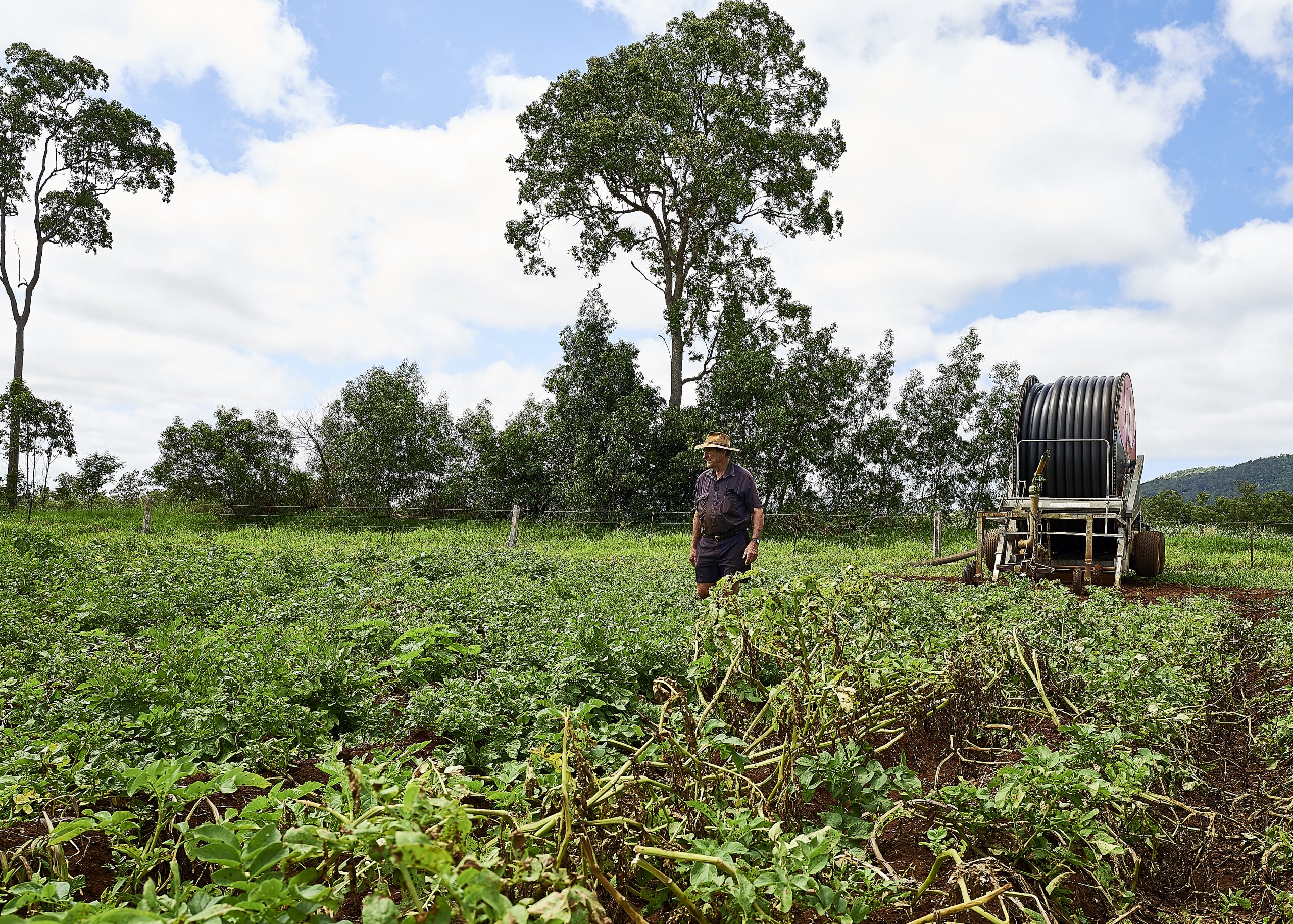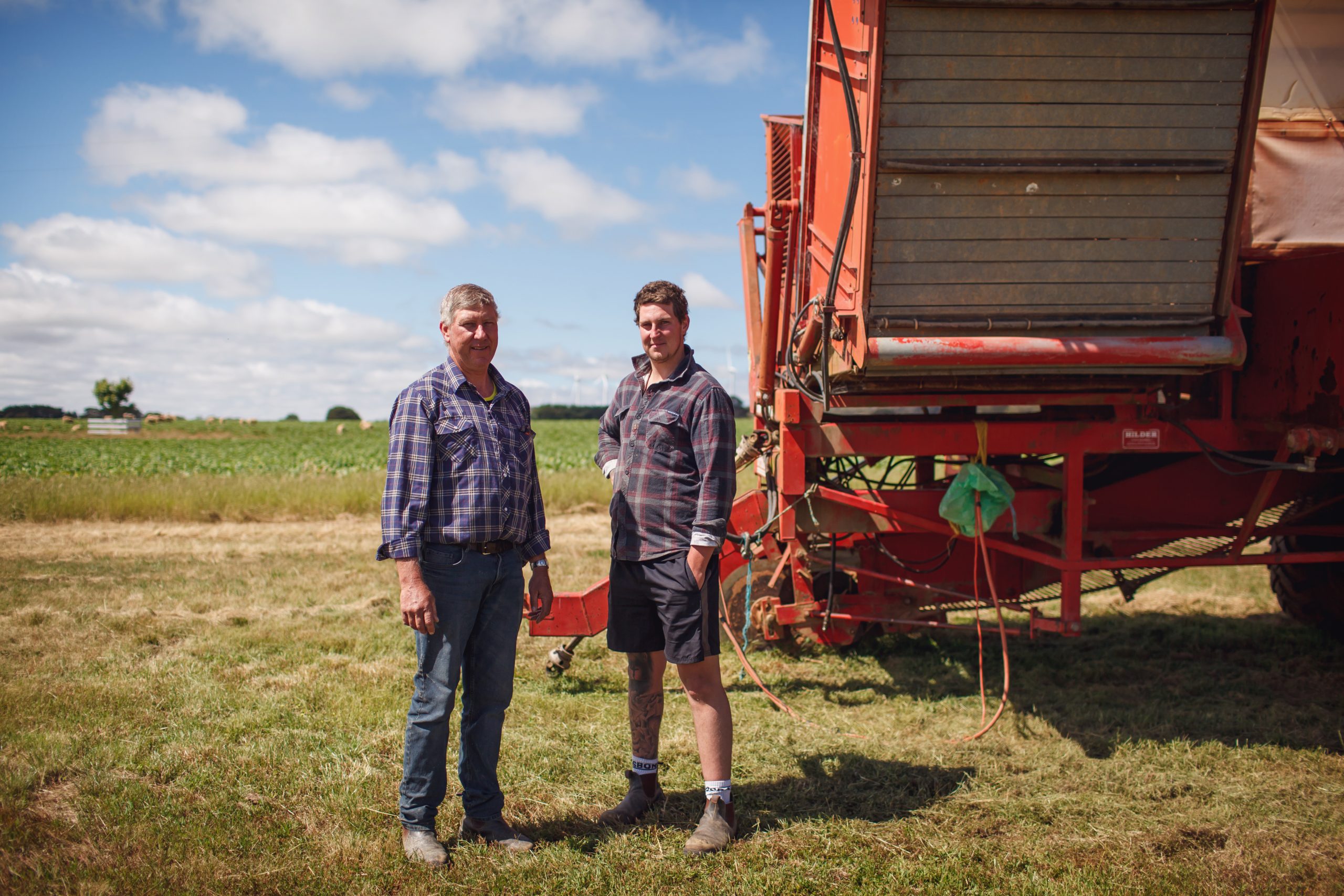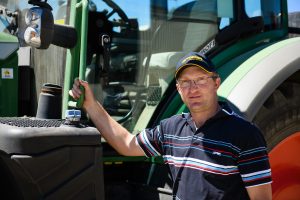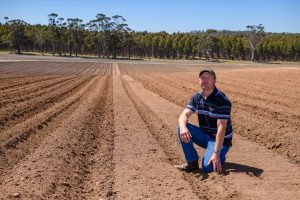
David Nix: Checks and balance
23 April 2020
Matthew Gay: Read alert
23 April 2020A strategic levy investment conducted by the South Australian Research and Development Institute (SARDI) has benefited productivity of Australia’s $500 million potato industry.
This is largely due to PreDicta Pt, a DNA-based soil testing service, which allows growers to test fortnightly samples of their soils from mid-June to the end of October every year. This time-frame helps growers with paddock and disease-management planning. PreDicta Pt testing identifies whether soil borne pathogens pose a major risk to potato crops prior to planting.
The testing includes an indication of the risk of powdery scab (Spongospora subterranea); black dot (Colletotrichum coccodes); and root-knot nematode (Meloidogyne fallax).
One seed grower who wouldn’t be without the testing is Andrew Wilson, a fourth-generation potato seed producer from Mount Seymour in the Tasmanian southern midlands.
“It really is an invaluable tool for us as seed growers, because we rely on our product to be of a very high quality,” Andrew says.
PreDicta Pt soil testing technology (PT09023) was a strategic levy investment under the Hort Innovation Fresh Potato and Potato Processing Funds.
Minimising risk
Andrew says that the need for soil to be as disease-free as possible is paramount for his thriving family-run business of almost 800 hectares, Wilson Agricultural, which was established in 1933 by his great-grandfather Cyril Wilson.
The rotations on Andrew’s property are lengthy, from eight to 10 years between potato crops, so any potential disease-ridden outcomes would be heartbreaking. He also leases land to lessen the risk of disease. Half of Wilson Agricultural’s annual seed produce of 1,400-1,600 tonnes is grown on Andrew’s farm.
He supplies to processor Simplot Australia, which introduced Andrew to the testing service when it was launched in 2013.
PreDicta Pt has since achieved widespread support from Australian growers, processors and agronomists. Andrew says it’s not just about finding what is in the paddock, but also dispelling any preconceived problems. PreDicta Pt provides this peace of mind for Andrew, as it gives the “heads up on what may be there as far as disease goes”.
It also provides the opportunity to change paddocks, crop protection products or the variety of potatoes grown. As an example, Andrew endorses the disease resistance and sturdiness of Nicola and Moonlight varieties on his soil.
Wilson Agricultural also grows a range of Ranger Russet and Russet Burbank potatoes. These are more susceptible to powdery scab, which Andrew says is the number one problem that potato growers face, Australia-wide.
“The problem you have, especially on a lease farm, is that you don’t know the history of the paddock; you don’t know what’s been grown and what diseases they may have faced.”
PreDicta Pt testing opens up growers’ eyes to previous challenges and removes the guesswork involved in future growth yields. Like most potato growers, Wilson Agricultural outlays vast sums of money annually in fertiliser, seed and water supplies.
“To do all that and end up with a poor result is something you can’t afford,” Andrew says.
“Without the testing, we’d be flying blind, especially on an older farm that’s grown a lot of potatoes.”
Wilson Agricultural has rarely failed to pass stringent certification procedures in crop quality. Andrew believes this is largely a result of adopting the PreDicta Pt testing.
“All our potatoes are transported in bulk trailers of about 24 tonnes per trailer and, in the past four years, there would only be two or three trailers that haven’t passed out of thousands of tonnes, because of knowing what’s going on.”
Summary
- PreDicta Pt is a DNA-based soil testing service that helps growers with paddock and disease management planning. The testing identifies whether soil borne pathogens pose a major risk to potato crops prior to planting.
- Tasmanian seed potato grower Andrew Wilson has been using the testing service since 2013, and it has given him the confidence and peace of mind to manage existing crops and plan for future growth. It has not only identified potential disease-borne soil but allowed Andrew to switch potato varieties better suited to his soil.
- Project PT09023 was funded by Hort Innovation using the fresh potato and potato processing research and development levies and contributions from the Australian Government.
This article first appeared in the 2017 Grower Success Stories: Real results from the potato R&D levy.



